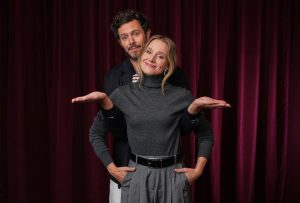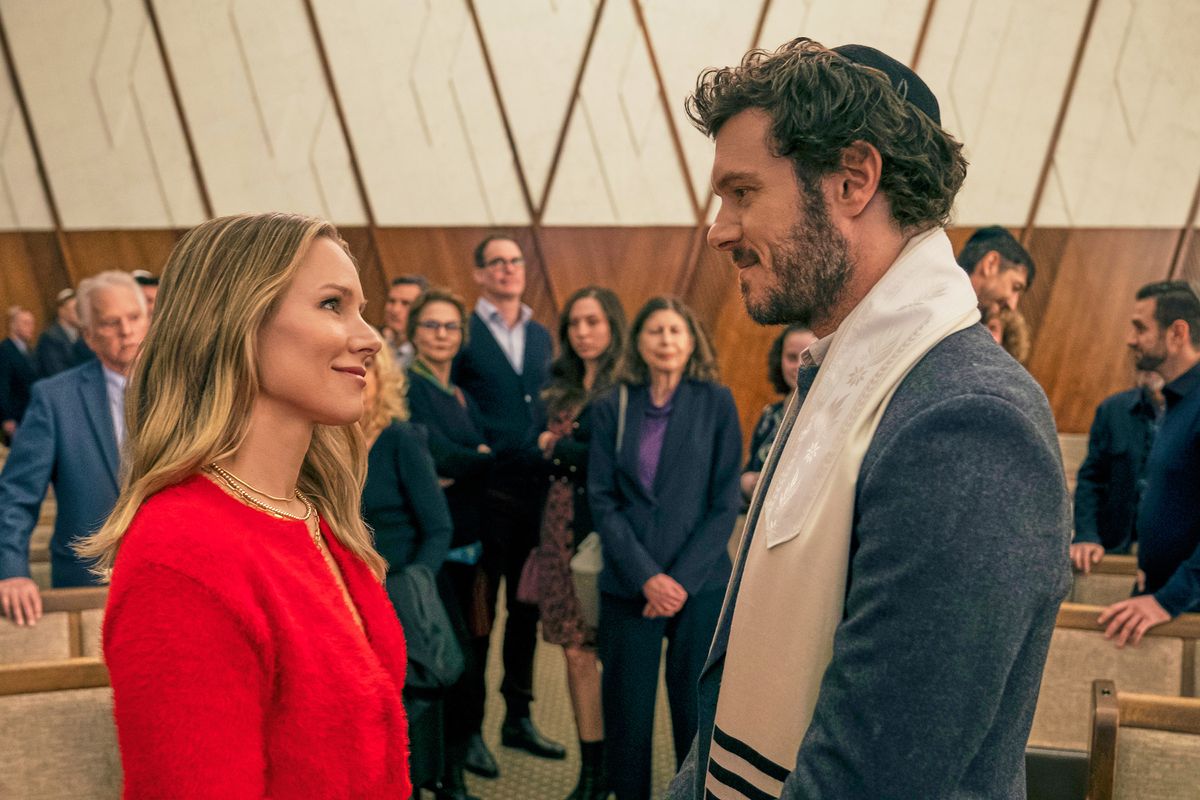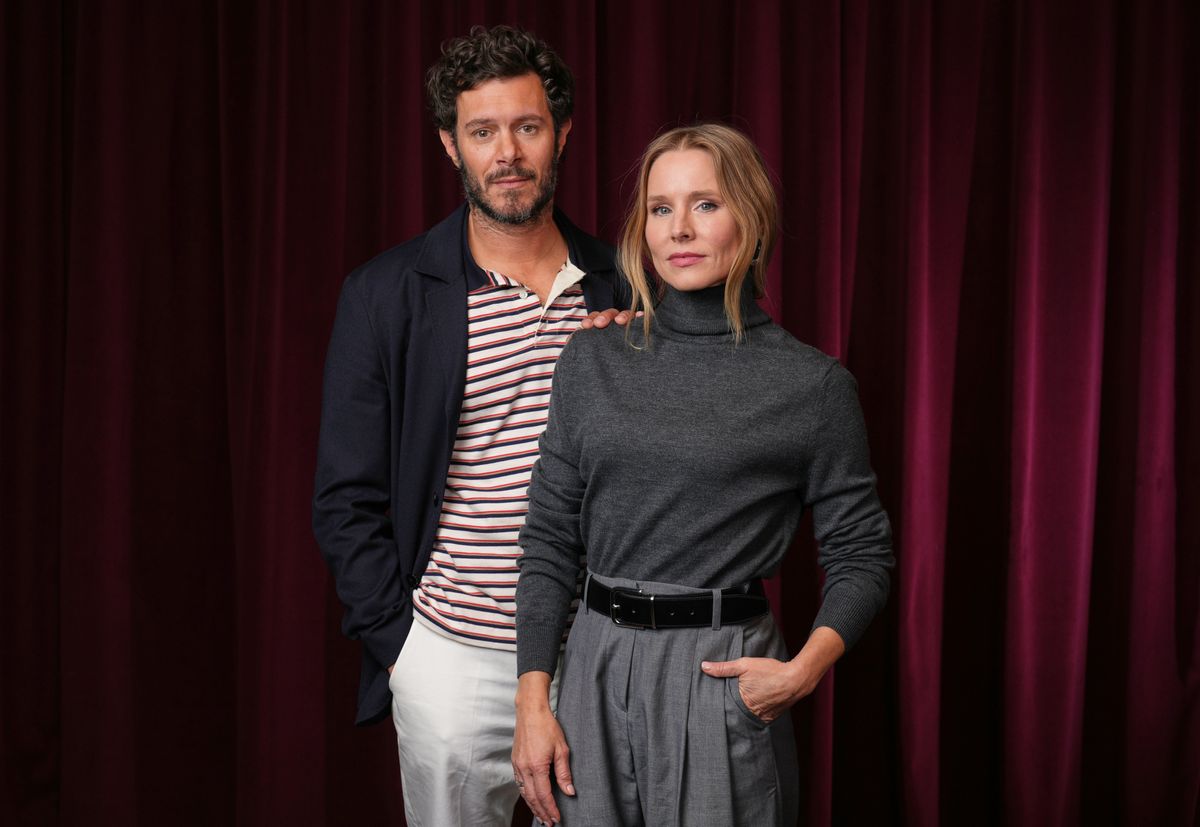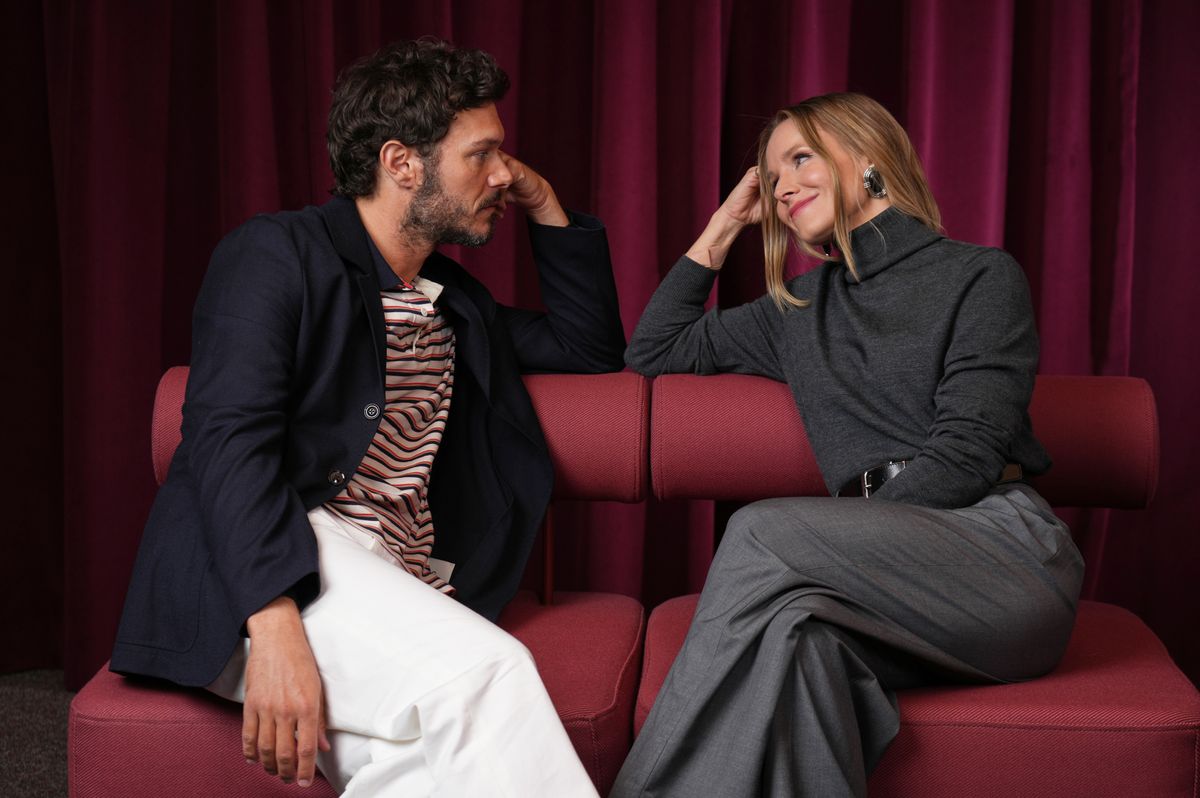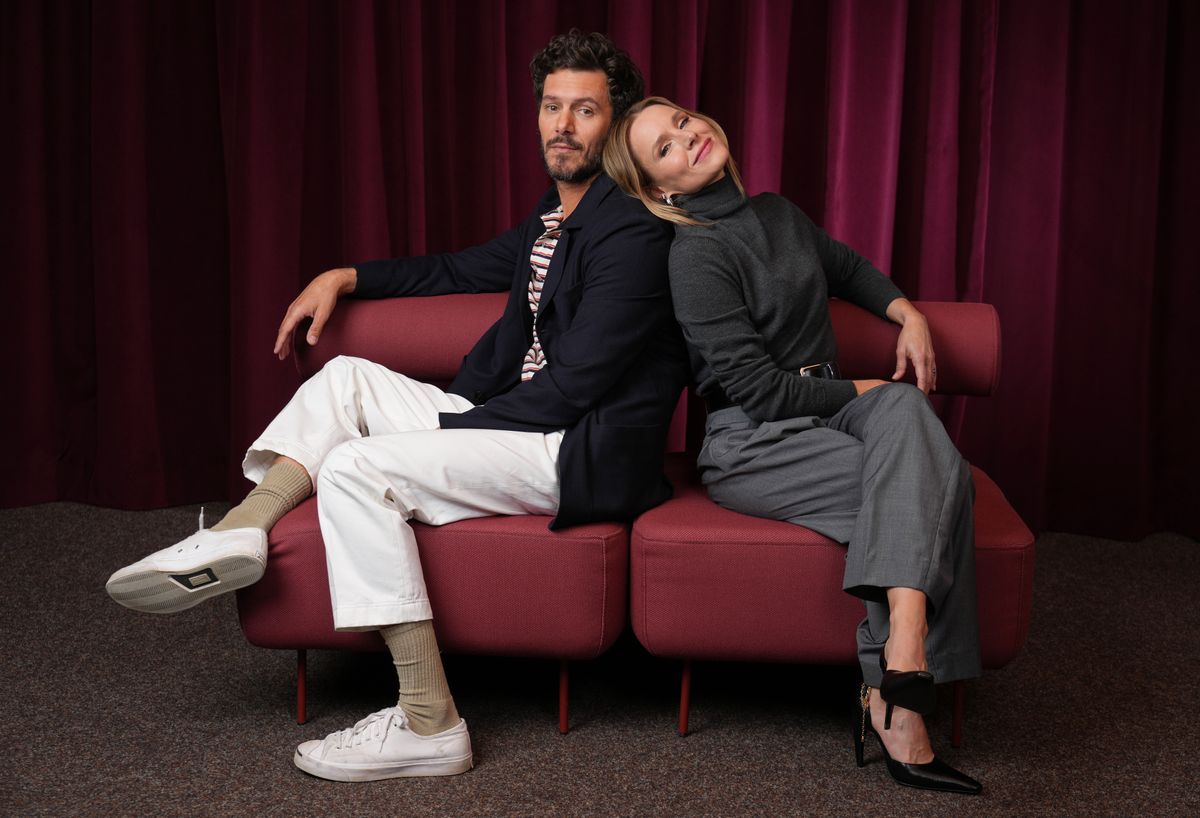LOS ANGELES (AP) — When the first season of Netflix’s “Nobody Wants This” premiered last year, the series exploded in popularity in ways its creator and stars could never have imagined. It spent six weeks on Netflix’s Global English Top 10 TV List and was viewed 57 million times in three months, according to the streaming service.
“I think we just kind of won the lottery with how ready people were for this kind of story,” said star and executive producer Kristen Bell ahead of Season 2’s release on Thursday.
The romantic comedy follows the relationship between a hip but devout Reform rabbi, Noah (Adam Brody), and Joanne (Bell), an agnostic woman who hosts a podcast about dating and sex.
But with the internet’s collective swooning over Brody’s hot rabbi, there also came swift criticism and think pieces about how the show played into antisemitic tropes, especially in its depiction of Jewish women. Noah’s sister-in-law, Esther, and his mother, Bina, were often decried as bitter and controlling antitheses to Joanne and her sister, Morgan (Justine Lupe).
“When it first came out and I watched the first episode, I was so uncomfortable,” said Rabbi Elan Babchuck, the executive vice president of the National Jewish Center for Learning and Leadership. “There’s a lot that I would want to change about it.”
He took issue with a host of the show’s depictions of Judaism, which he thinks was often presented as a “test to pass rather than a tradition to pass on,” as well as the frequent use of the word “shiksa,” a derogatory term for non-Jewish women (that is noticeably absent from Season 2).
Eventually though, Babchuck went back and watched the entire season. Although his critiques remained, he ultimately had a change of heart. “I celebrate the show. I think representation matters across the board, even when it’s in flawed form,” he said.
On-screen and off-screen changes in Season 2
When “Nobody Wants This” was renewed for a second season last year, Netflix announced that HBO’s “Girls” alums Jenni Konner and Bruce Eric Kaplan would be taking over as showrunners, while Erin Foster, the show’s creator who loosely based the story on her own life and conversion to Judaism, would stay on as an executive producer.
“We love the show. It’s Erin’s voice. It’s Erin story,” Konner said. “Our job is literally to protect her voice and to show her stuff she may not know because she hasn’t done this job before.”
As things get serious between Joanne and Noah in the first season, the couple must navigate the inevitable questions that come with their disparate backgrounds about conversion, family and Noah’s job. The second season finds them dealing with the fallout of Noah being passed up for head rabbi at his temple because Joanne wasn’t ready to convert.
But Season 2 also shows a different side of Bina and explores more of Esther’s story, something Foster maintains was always part of the plan.
“If you are a Jewish woman who has felt like you didn’t like how you’re portrayed in the world or how people view you and this sort of reaffirmed that, I can understand the sensitivity. Definitely it was never the intention,” she said. “I think that the characters evolve in Season 2 in a way that they always naturally were going to.”
Fielding criticism
For the most part though, Foster and the rest of the cast are taking the critiques with a grain of salt. “Not everyone should be allowed to put their opinion publicly everywhere,” she said.
“Obviously, one show or group of characters can’t stand in for a whole civilization,” Brody added.
Jackie Tohn, who plays Esther, said she was surprised by some of the feedback.
“The two craziest characters on this show are undoubtedly Joanne and Morgan,” she said. “I feel like if anything, the Jewish women are following the rules and they’re grounded. They might be a little ordering their husbands around, but good luck arguing with that point.”
Foster said she took seriously how she was representing Jewishness on the show and that they, from the beginning, employed a rabbi consultant who “read every script” and was present in the writers room.
Rabbi Nicole Guzik of Sinai Temple, a Conservative synagogue in Los Angeles where parts of “Nobody Wants This” were filmed, recalled Brody for both seasons asking her to go over his Hebrew pronunciations with him. “It was so sweet and so authentic that he cared very much about playing the role accurately,” she said.
Finding faith in ‘Nobody Wants This’
Although “Nobody Wants This” explores Judaism as a religion and whether Joanne will ultimately embrace it, Foster maintains the religious elements are meant to be “more of a backdrop” for their love story than a focal point of the series.
“There is no intention for it to feel heavy-handed. I think that people really grabbed onto the right amounts of religion in the show,” she said.
But for some, the show’s engagement with Judaism and conversion is what makes it unique and attractive.
“To have a Netflix series be so popular and be around conversations of what it means to be Jewish in an uplifting way, in a curious way, I don’t see how we can be critical,” Guzik reflected. “I know that there are going to be different pieces of a Jewish narrative that I may not necessarily ascribe to or align with. But that’s also the Jewish story, right? We are widely diverse.”
___
Associated Press religion coverage receives support through the AP’s collaboration with The Conversation US, with funding from Lilly Endowment Inc. The AP is solely responsible for this content.
By KRYSTA FAURIA
Associated Press

